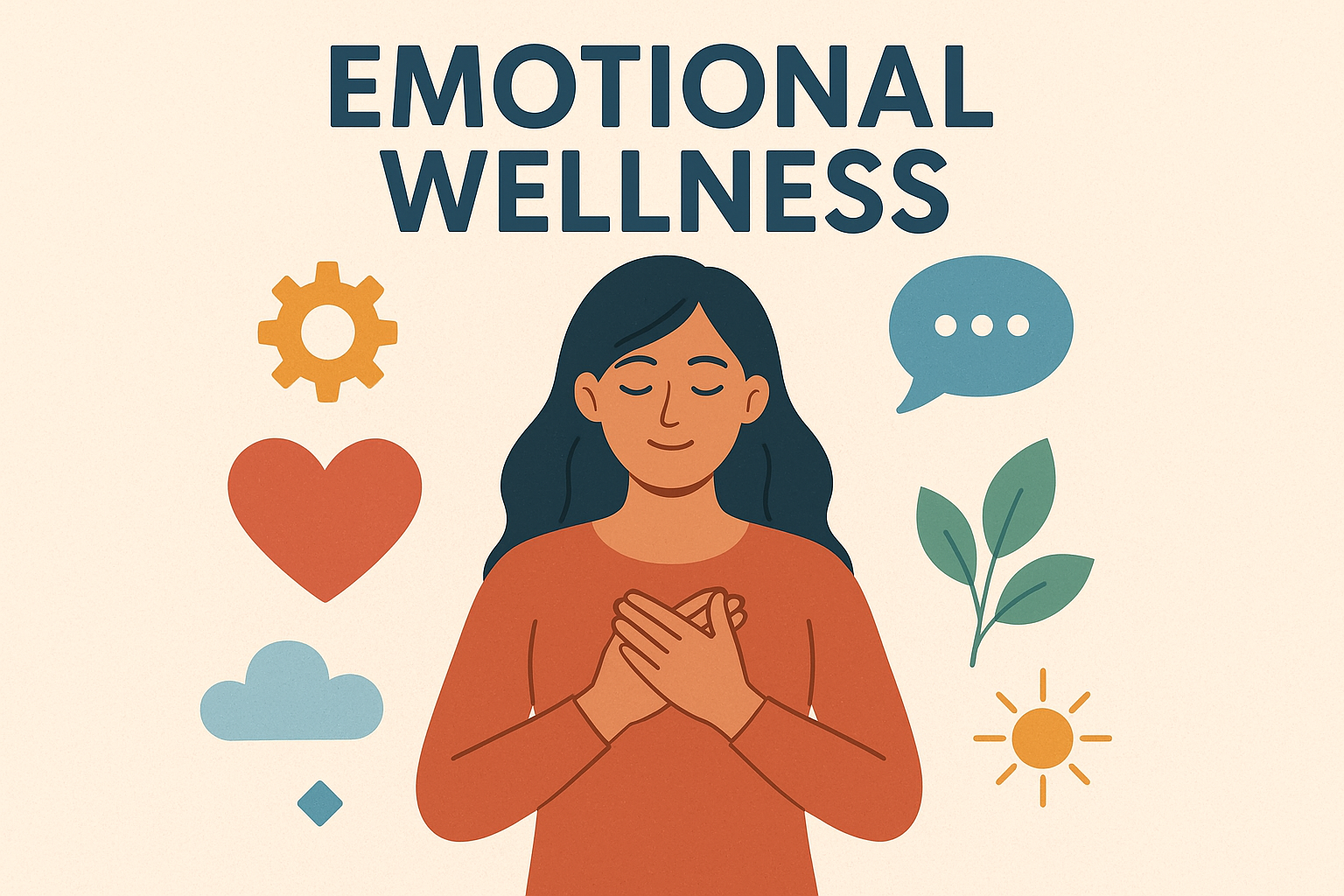In today’s fast-moving world, we often focus on physical health—what we eat, how we look, or how fit we are. But emotional wellness is equally important. It’s the foundation that supports our relationships, decision-making, stress management, and even our physical health. Without emotional balance, life can feel overwhelming, no matter how successful or healthy we appear on the outside.
So, what exactly is emotional wellness? It’s the ability to understand, express, and manage your emotions in a healthy way. It’s not about being happy all the time, but about being aware of your feelings—both positive and negative—and learning how to handle them with maturity and care.
Let’s dive into what emotional wellness really means and how you can nurture it in your everyday life.
1. Understanding Your Emotions
The first step to emotional wellness is self-awareness. This means recognizing your emotions without judging them. Are you feeling sad, anxious, angry, or excited? Instead of ignoring or suppressing those feelings, try to understand where they come from.
For example, if you’re feeling irritated after work, ask yourself: is it because of a specific event, or are you just tired? Understanding the root cause helps you respond thoughtfully instead of reacting impulsively. Journaling, meditation, or simply talking to someone you trust can help you connect with your emotions more clearly.
2. Practicing Self-Compassion
We often show kindness to others but forget to do the same for ourselves. Emotional wellness requires self-compassion—treating yourself with understanding, especially during tough times. Everyone makes mistakes or faces failures. Instead of being harsh on yourself, remind yourself that imperfection is part of being human.
You might try saying gentle affirmations like, “I’m doing my best,” or “It’s okay to take time to heal.” These small acts of self-kindness can make a big difference in building inner strength and peace.
3. Managing Stress Effectively
Stress is unavoidable, but how we deal with it determines our emotional health. When stress builds up, it affects sleep, mood, relationships, and focus. That’s why managing it is essential for overall well-being.
Here are a few simple but powerful ways to reduce stress:
- Practice mindfulness: Focus on the present moment. Try deep breathing exercises or guided meditation.
- Engage in physical activity: Even a short walk or stretching can calm your mind.
- Set boundaries: Learn to say no when needed. Overcommitting often leads to burnout.
- Take breaks: Allow yourself to rest. Doing nothing is sometimes the most productive thing for your emotional health.
4. Building Healthy Relationships
Humans are social beings. Emotional wellness thrives on meaningful connections with family, friends, and loved ones. Supportive relationships can lift your mood, reduce loneliness, and help you navigate life’s challenges.
To build emotionally healthy relationships:
- Communicate openly and honestly. Express how you feel instead of holding things inside.
- Listen actively. Be present when others share their feelings.
- Respect boundaries. Give others (and yourself) space when needed.
Remember, a healthy relationship doesn’t mean being together all the time—it means understanding and respecting each other’s emotional needs.
5. Letting Go of Negativity
Holding onto grudges, guilt, or anger only harms your emotional health. Forgiveness doesn’t mean forgetting or accepting what happened—it means freeing yourself from emotional baggage. Letting go is not weakness; it’s strength.
You can start by identifying what’s weighing you down. Is it a past mistake, a toxic friendship, or self-blame? Acknowledge it, accept it, and then consciously release it. This process may take time, but it’s deeply healing.
6. Embracing Gratitude and Positivity
A grateful heart is a happy heart. Studies show that practicing gratitude can improve emotional balance, reduce stress, and even boost immunity. Each day, write down three things you’re grateful for—no matter how small they seem. It could be a good cup of coffee, a kind word, or the sunshine outside.
Surround yourself with positivity—people who inspire and uplift you, activities that bring you joy, and thoughts that make you feel hopeful. Over time, gratitude shifts your perspective and helps you focus on what truly matters.
7. Seeking Help When Needed
Lastly, emotional wellness doesn’t mean handling everything alone. Sometimes, talking to a therapist or counselor can help you gain new insights and tools to cope better. There’s no shame in seeking help—it’s a sign of courage and self-respect.
Final Thoughts
Emotional wellness is not a destination—it’s a lifelong journey. It’s about finding balance, learning from your emotions, and growing through every experience. When you nurture your emotional well-being, you not only feel more peaceful but also become more compassionate, resilient, and fulfilled.
Start today. Take a few minutes to check in with yourself, breathe deeply, and remind yourself—you are doing just fine. Because emotional wellness begins with one simple truth: you deserve to feel good inside.



